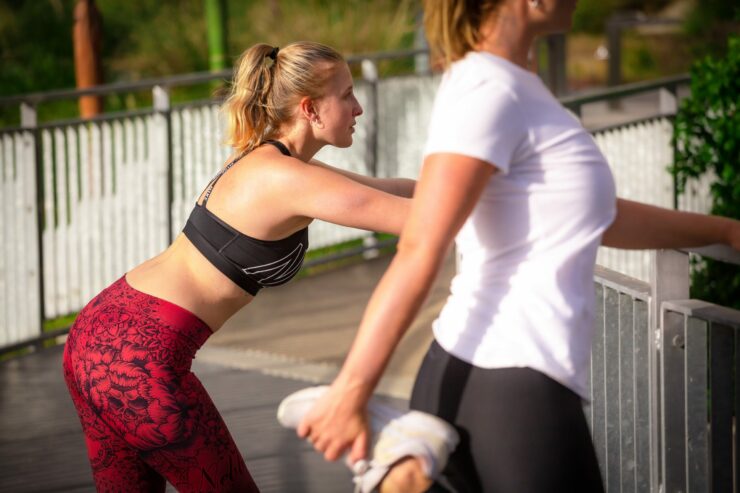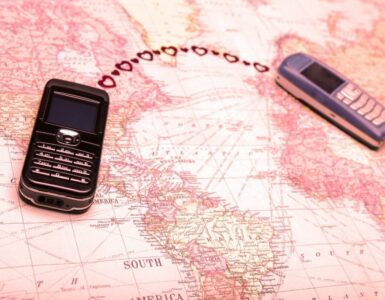Good exercise and nutrition during pregnancy can keep you and your developing baby healthy. For active mums-to-be, you need more certain nutrients like protein, calcium, iron, folic acid, iodine, and some exercise to keep your pregnant healthy.
Starting a fitness program and eating healthy may seem straightforward, but the truth is that many mums-to-be don’t know how to do it right. Here are some pieces of advice to help you exercise and eat healthy during pregnancy.
Mums-To-Be Exercise Tips
There are several ways mums-to-be can safely stay fit during pregnancy. Exercise tips during pregnancy include:
- Make sure you always warm up before exercising.
- Aerobic exercise such as swimming, running, cycling, or aerobics classes shouldn’t take more than 15 minutes, three times a week.
- Try to be active every day – 20 to 30 minutes of walking or exercising each day can be enough.
- If you visit a fitness center, make sure they know you’re pregnant.
- Exercises with a higher risk of falling, such as downhill skiing, horse riding, ice hockey, cycling, and gymnastics, should be done cautiously.
- Be patient with your exercise because too much weight loss can have negative effects on your baby.
Do not exhaust yourself and avoid any strenuous exercise. As a general rule, make sure you can hold a conversation with people as you exercise. If you become breathless, then you’re probably exercising too much. You may need to reduce your exercise as your pregnancy progresses.
Exercises To Avoid During Pregnancy
- Make sure you don’t lie flat on your back for too long, especially if you four months pregnant, because your bump weight can press on the main blood vessel.
- Do not exercise at heights above 2,500m because you and your baby are at high risk of altitude sickness.
- Do not participate in contact exercises or sports such as kickboxing, squash, or judo where there’s a risk of being hit.
- Do not go scuba diving because your baby has no protection against gas embolism.
Healthy Eating Pattern For Mums-To-Be

Eating healthy during pregnancy means developing a healthy eating pattern that includes various nutritious foods and drinks.
- Eat a variety of fruits, vegetables, fat-free products, whole grains, and protein foods.
- Choose foods and drinks with less saturated fats, added sugars, and sodium.
- Limit the consumption of refined grains and starchy foods like cookies, snack foods, and white bread.
Foods Mums-To-Be Can’t Eat
Please stay away from the foods listed below. These foods may have bacteria that can hurt your baby.
- Unpasteurized milk or juices.
- Raw or rare meats, eggs, or poultry.
- Soft cheeses unless they are pasteurized.
- Raw or rare fish such as sushi or raw oysters.
- Avoid lunch or deli meats, hot dogs, and smoked seafood.
- Avoid prepared salads like chicken salad, ham salad, or seafood salad
- Don’t eat raw sprouts, including mung bean, clover, alfalfa, and radish.
- Limit drinks with added sugars and caffeine
- Choose decaf coffee if you love to drink coffee or tea. Pick unsweetened options and don’t add sugar.
- Drink more water instead of drinks with added sugars like fruit drinks, soda, and sports or energy drinks.
In Conclusion
During pregnancy, your growing baby counts on you. Exercise and eating healthy foods can help you get the nutrients and strength that you need. In fact, staying active, healthy foods, and gaining the right amount of weight during pregnancy can keep you and your baby healthy.
For most mums-to-be, it’s safe to exercise every day. Being active can help you relieve stress and give you the energy your body needs to get ready for labor and birth!












